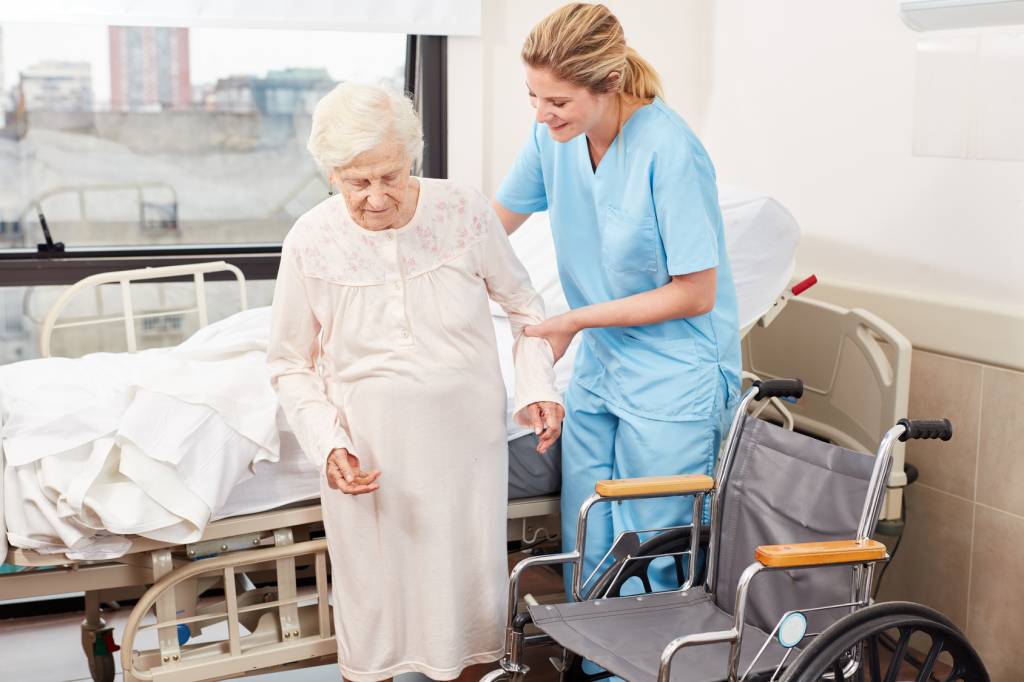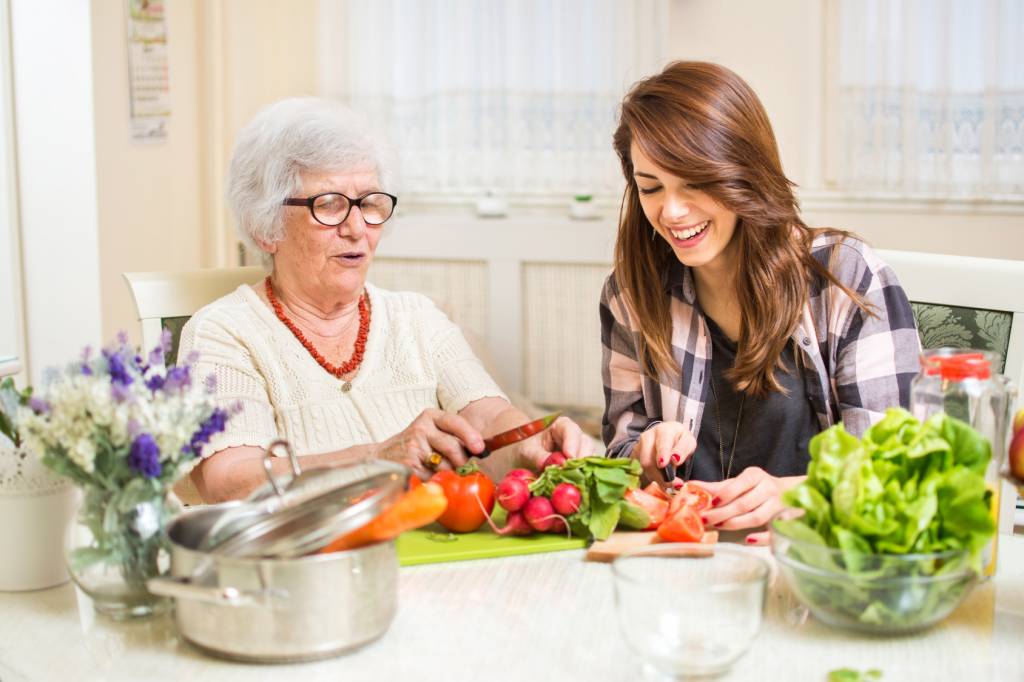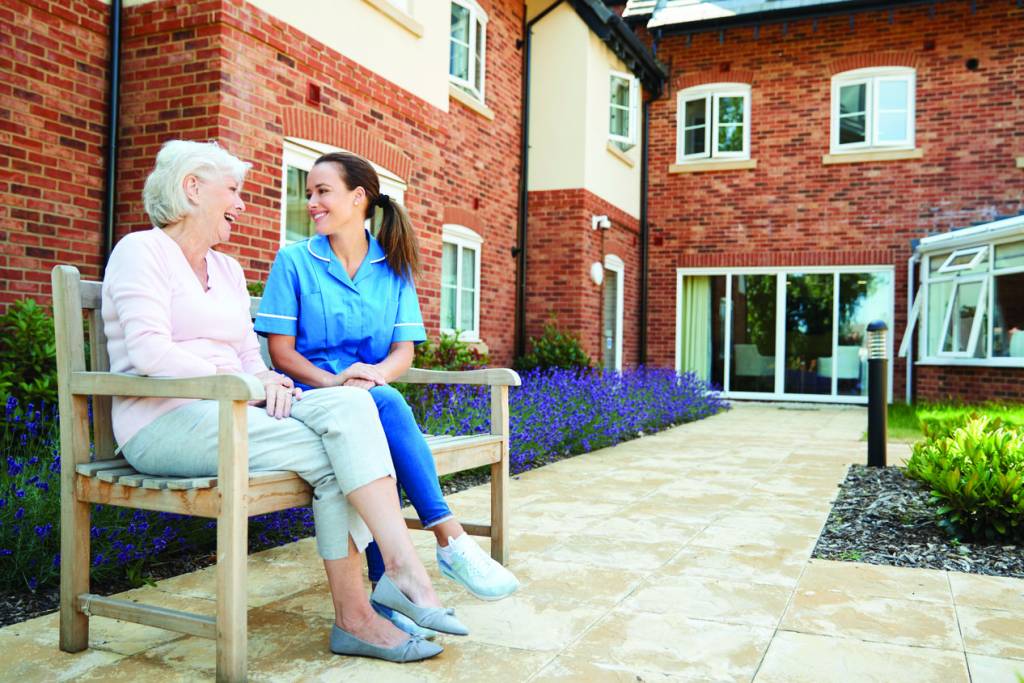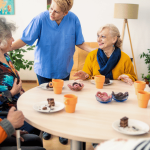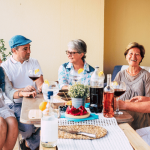Many seniors live at home alone and choose to age in place even if they are on their own. Some seniors may live too far from their family to see them regularly, and some may have recently lost their spouse or close friends. This isolation may cause families to worry whether their elderly loved ones have the help and care they need to live safely. Living alone can also prevent seniors from getting necessary socialization.
With no one around, seniors may stop going out to socialize due to transportation concerns or even fear of injury. They become physically and socially isolated from others, leading to feelings of loneliness, which can eventually have a detrimental effect on their mental and physical health.
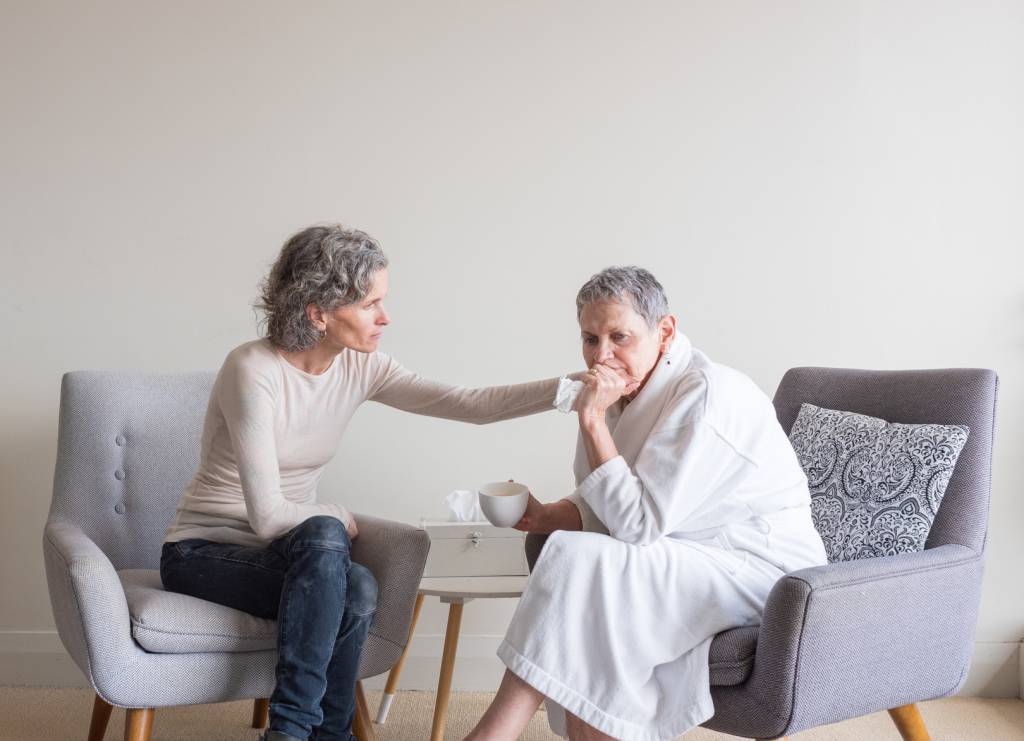
Loneliness has been known to cause numerous health problems, such as high blood pressure, for seniors. Knowing this, you should be concerned about how your elderly loved one’s mental and physical health is affected if they live alone.
Continue reading to learn more about the impact of loneliness on seniors’ health and to learn what you can do to ensure your elderly loved ones remain healthy.
Loneliness Hindering Seniors’ Health
While loneliness is not a direct cause of poor health in elderly individuals, studies have shown there is a direct correlation between the two. Loneliness affects a senior’s mental health, and it can have a serious effect on their physical health as well.
1. Mental Health
Loneliness is a negative emotion, so it is not something any person — regardless of their age — feels good about. It can lead to other negative feelings, such as sadness, decreased self worth, and numbness. These are all emotions that are commonly associated with depression, which is a serious mental health concern. These feelings can also be linked to thoughts of suicide.
If an elderly individual has preexisting mental health issues, then feelings of loneliness can worsen their condition.
2. Physical Health
Loneliness may not be a physical problem, but it is linked to certain physical health conditions. For example, a study by the Proceedings of the National Academy of Sciences found that seniors who experience loneliness are more likely to suffer from a long-term illness. Other studies have shown a link between loneliness and increased risk for heightened blood pressure, stroke, and heart disease.
Loneliness in seniors can also be correlated with a higher risk of mortality. The aforementioned PNAS study explains that this can be the case because lonely elderly individuals might be hesitant to seek medical care when necessary. They live alone and/or may interact with others on a minimal basis, so no one else will encourage them to seek help.
3. Cognitive Decline and Dementia
Seniors who are socially isolated are also at greater risk for cognitive decline. Studies have shown that lonely seniors are more prone to experiencing Alzheimer’s disease and other forms of dementia. A study by the Rush Institute for Healthy Aging also suggests this is because the disease likely progresses before symptoms can be reported.
How to Identify Whether a Senior is Experiencing Loneliness
It can be tough to recognize if your elderly loved ones are struggling with loneliness, especially if you are not around them often. Feelings of sadness and despair are an obvious sign of loneliness. However, there are various other signs you can look for whenever you visit or communicate with seniors. These include:
- Lost interest in everyday tasks and activities, socialization, and hobbies
- Lack of motivation
- Memory issues
- Sleeping problems
How to Help Seniors Who are Lonely
1. Maintain Regular Communication
Family members may live far away from their elderly loved ones, but this should not prevent relatives from maintaining contact. With today’s technology, it is easier than ever to stay in touch with loved ones. Schedule regular phone calls with your senior relatives to stay updated on how they are doing and to make sure they know they are not alone.
If seniors have a good grasp of modern technology, you can even opt for video calls through a smart phone or computer. This is an especially good option because it allows you to also visibly see how they are doing.
2. Visit When Possible
If occasional in-person visits are not out of the question, then make time to see your elderly relatives. Electronic communication is great but should not always be a substitute for human interaction.
3. Hire Professional Home Care Help
When elderly individuals have a professional caregiver who can help them at home, they will get the care and the socialization they need to live a better quality of life. Caregivers can double as companions for seniors, keeping them company and engaging in their favorite activities.
Home care professionals can even provide transportation services to seniors. A great number of seniors do not drive, which limits their opportunities for socialization. Professional caregivers can drive elderly individuals to social events and activities to allow them time to socialize.
Companion Care Services
If you have an elderly relative who lives alone, then Assisting Hands’ companion care services can be a great benefit for them. Within these services, a trained caregiver will be a companion as well as a caregiver to your loved one. They will make regular conversation, plan social activities, manage visits with family and friends, and encourage exercise.
Additionally, caregivers can provide whatever help the senior needs, whether it be elderly home care assistance or help around the home. So, you can feel at ease knowing that your elderly loved one has the home care and companionship they need to live a happy and healthy life.
Contact Us
Give us a call at (847) 796-6685 to learn more about how we can help improve your loved one’s feelings of loneliness.

